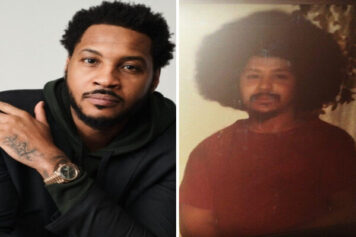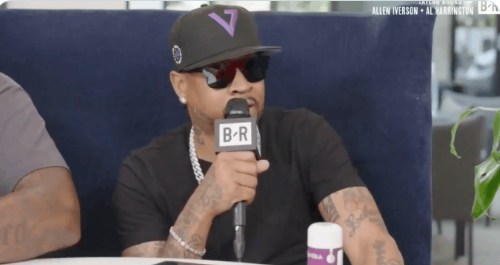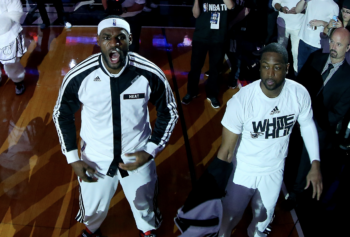Dwyane Wade is reflective over his NBA career as of late, participating in interviews where he keeps it real on his playing days and marriage to Gabrielle Union.
Now he is sounding in line with former NFL quarterback-turned-activist Colin Kaepernick and comparing the process of being drafted into the NBA to the transatlantic slave trade.
“Just thinking, man. Bring ’em here, clean ’em up. Just to go sell them then they get branded,” Wade said on a three-part BET special about his wife, titled :Gabrielle Union: My Journey to 50.”
“I could do nothing but think about the way God built me and how my physique fits,” he said. “Well, you know, it’s like you go to the NBA, and your physique matters. My arms being long, the build of my body, my athleticism. That’s what got me drafted … The same process that changed my family’s life and fortune, the same process that had us enslaved. It’s the same thing. Clean up and let them draft me. It’s built off the same principle.”
Is The Draft A Modern-Day Slave Auction?
It is no secret that in the super competitive NBA, every coach and general manager is looking for key elements that will make their team go from good to great. The unique physiques that make NBA players special are a factor — from height, speed, and ability to jump higher than most to an overall will to win.
The fact that many Black athletes are proficient in sports like basketball and football, yet the ownership ranks are still majority white, provides a nuance into the cultural undertones of the business. In the Netflix series, “Colin in Black & White,” Kaepernick made the exact correlation between the NFL’s combine with modern-day slavery.
In the first episode, Black football players are doing drills in front of white coaches in what feels eerily reminiscent of a slave auction.
“What they don’t want you to understand is what’s being established is a power dynamic,” Kaepernick said. “Before they put you on the field, teams poke, prod and examine you, searching for any defect that might affect your performance,” he continued. “No boundary respect. No dignity left intact.”
Contradictions
Ironically, Kaepernick still wants to play for that system, even writing a letter to the New York Jets in the wake of Aaron Rodgers’ injury, out of interest in playing on the practice squad.
Wade is part of the NBA ownership structure as a minority owner of the Utah Jazz, and even though that is progress on an equity level, there is no indication that his presence alone helps any draft processes not feel like a mimicry of enslaving. His oldest son, Zaire Wade, is a professional basketball player who last played for the Cape Town Tigers of the Basketball Africa League.
The topic is profound, and Wade’s point is made. Still, with so many contradictions between Dwyane Wade and his family’s real-life basketball ambitions and his view on its potentially culturally stifling structure, D Wade has a lot to think about when criticizing the game of basketball that has made him a global superstar.



